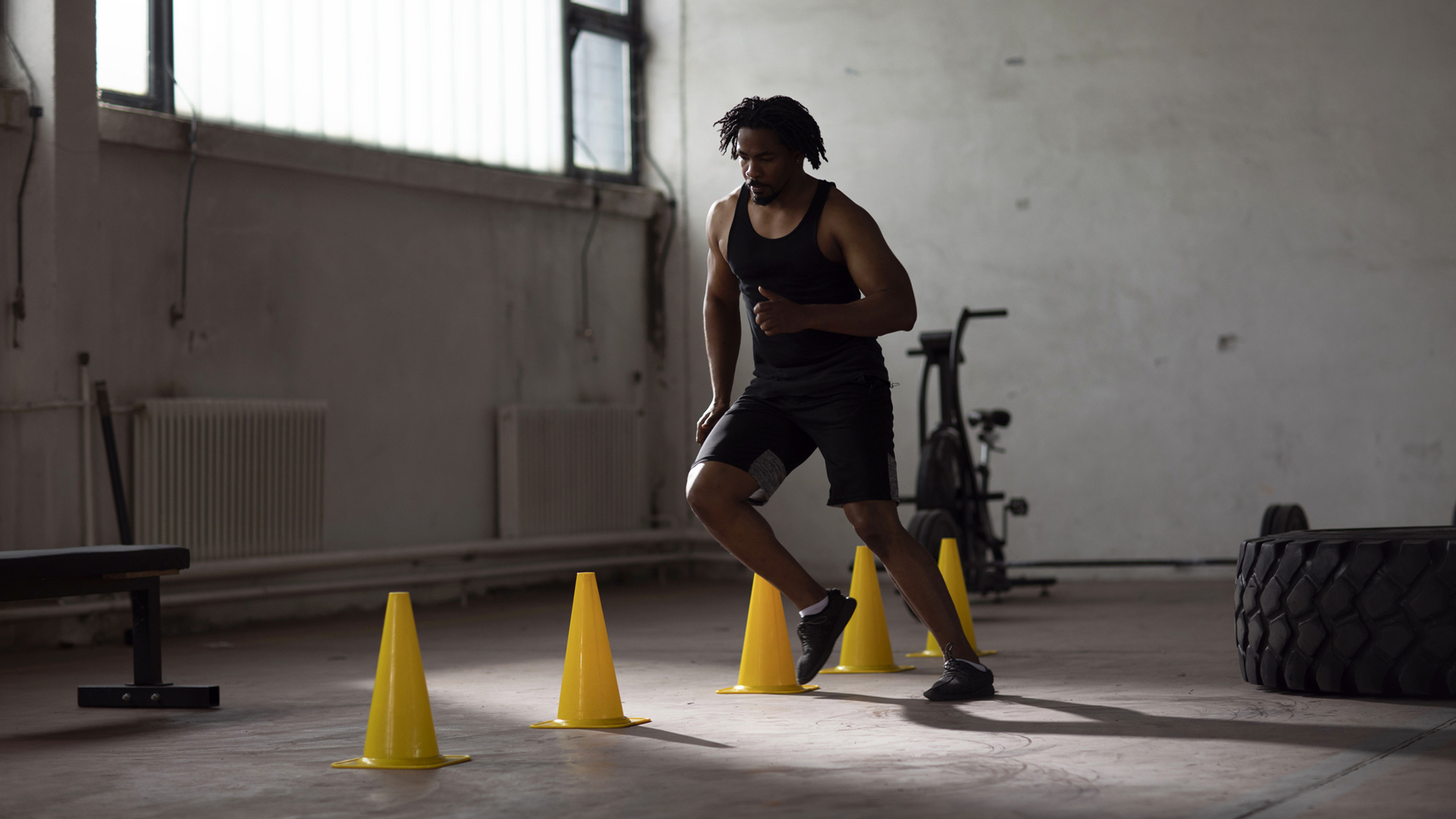

The best thing to do to get better at long-distance running is to increase mileage steadily, follow a good recovery routine and allow enough time to rest. But to maximise performance, you must also do strength workouts, especially if you attend long-distance races on a frequent basis. Even if you don't, having stronger muscles will help you become a more efficient runner in general.
What are the best strength exercises for runners, though? We asked Phil Evans from Urban Body, who has worked with Team GB athletes before as well as Leicestershire County Cricket Club and at the Loughborough University Physiotherapy Clinic as a physiotherapist.
The sad truth is that even the best running shoes and best running watches won't prevent you from getting injured if your muscles are weak. Phil suggests four strength exercises for runners to avoid discomfort and injury during long distances, as explained below.
How to do the best strength workout for long-distance runners
For the below exercises, Phil recommends three sets of 15 repetitions, 2-3 times per week. Running on light trails or grass a couple of weeks before the race can help keep the legs feeling fresher, as softer ground lessens the impact muscles absorb.
Mark Scourse, 47, from Hall Green ran the recent Manchester Marathon in 3 hours and 55 minutes after receiving treatment from Urban Body. He says the strengthening exercises he was given made a big impact:
“It sounds strange but having a calf problem has been an almost positive experience for me because the exercises I’ve been doing have made me a better runner", Mark says, "I have more stability and strength in the supporting muscles thanks to my weekly physio sessions, which have made a huge difference to my confidence. It’s really important to listen to your body and get professional advice if you pick up a minor injury.”
Best strength workout for long-distance runners
1. Reverse lunges
Stand upright with your hands on your hips and legs at shoulder-width apart. Take a large step backward on one leg onto the ball of your foot. Simultaneously, lower your body down between both feet until your knees are both at 90 degrees. Hold and then rise back up using both legs, stepping your rear leg back to the front. Repeat for the other leg.
Sign up to the T3 newsletter for smarter living straight to your inbox
Get all the latest news, reviews, deals and buying guides on gorgeous tech, home and active products from the T3 experts
2. Single leg squats onto a chair
Aim to touch down lightly onto the chair and stand back up again. Stand on your affected leg. Once you have your balance, squat down on your affected leg. Keep your back straight as you lean forwards, pushing your hips back behind you. Ensure your knee travels directly forwards over your toes.
3. Crab walks
Place a theraband around your ankles and gather some tension. Keep your toes and knees pointing forwards. Side-step slowly, keeping constant tension on the band and controlling your trailing leg. Make sure you don’t bring your feet too close together.
4. Step ups
Stand up straight with a step in front of you. Move forward onto the step with one leg. Bring your other leg through and lift your knee up in front of you until your thigh is horizontal. Hold this position. Step back to the floor and repeat the movement.

Matt Kollat is a journalist and content creator who works for T3.com and its magazine counterpart as an Active Editor. His areas of expertise include wearables, drones, fitness equipment, nutrition and outdoor gear. He joined T3 in 2019. His byline appears in several publications, including Techradar and Fit&Well, and more. Matt also collaborated with other content creators (e.g. Garage Gym Reviews) and judged many awards, such as the European Specialist Sports Nutrition Alliance's ESSNawards. When he isn't working out, running or cycling, you'll find him roaming the countryside and trying out new podcasting and content creation equipment.